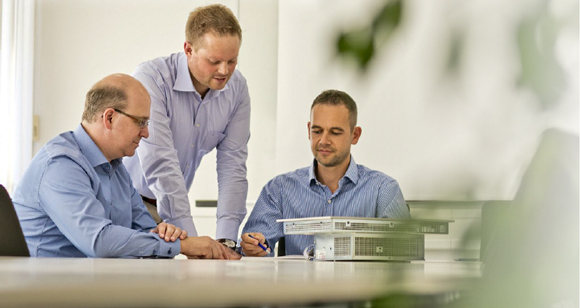How much does it cost to ask for help?
Three things to know about optimising time in the design cycle
Over the years, there has been an increasing trend for engineering suppliers to be called later into the design cycle, which can lead to project delays, higher product costs or some elements of the design having to be reworked. So what’s holding engineers back from engaging earlier with suppliers? Mark Checkley (Sales and Marketing Manager for KEB UK Ltd.) discusses the pitfalls associated with engineers calling suppliers late in the design cycle, as well as the benefits to be gained if they were to engage earlier.
Why are suppliers called late into the design cycle?

There are many reasons why this is happening, but I see three main recurring ones. First, it’s about company culture and the growing trend to reduce their number of suppliers and establishing a limited preferred supplier list. However, this does limit which suppliers they can ask for help from and so limits the expertise they’ll receive. Second, there’s often a power play between the design engineers and their purchasing department, which is a slightly different issue, but one which, as suppliers, we need to be aware of. Thirdly, credibility and reputation are key factors, not just the obvious reputation of the supplier, but often of the engineer who is looking at these designs for a new product development.
How much does it cost to ask?
Most engineers would say it costs nothing to ask for help and advice. Others would say it costs their time. However, consider the time that would be lost when you’re not 100 percent sure or aware of all the facts – it will often end without any clear results or conclusions. By asking a supplier whose aims and goals are as mentioned above, you are guided and led to the right technical solution, often in a shorter time frame.
What will early engagement save the customer?
By engaging with the supplier earlier in the design cycle, customers can benefit in a number of ways. In addition to the research time they will save, they will receive a technical solution that actually solves their problem. By having access to the manufacturer, they will benefit from advice and guidance on the full range of products that can be produced, as well as access to their experience and knowhow in providing a tailored solution that solves customers’ applications. A tailored solution often has other benefits, including reduced design cycles, faster time-to-market and gaining an edge over their competitors. Ideally, this could result in increased sales and market share for our customer and on a personal level, the design engineer can gain in reputation, recognition and trust – all this from simply asking for help earlier in the design cycle.
Read the full article in the January issue of DPA (Design Products & Applications)
Video interview with Mark Checkley “Optimising time in the design cycle”
